Section 7 Representation Agreements (RA7s)
For adults whose mental capability to understand is in question Download PDF versionSection 7 Representation Agreements (RA7s)
For adults whose mental capability to understand is in questionJump to: Overview • Forms • Examples • FAQs • Related Information
Jump to: Overview • Forms
Examples • FAQs • Related Info
Legally reviewed. Last update made in June 2023.
The information on this page is for you if:
- You are helping an adult who does not meet the traditional definition of capability. (that is, the adult has cognitive difficulties), and
- There is no existing legal authority in place.
If you meet the traditional definition of capability (of “understanding the nature and effect” of the legal document in question) please read our information on the Section 9 Representation Agreement and/or Enduring Power of Attorney.
Is a Section 7 Representation Agreement (RA7) a legal document in BC?
Yes, a Section 7 Representation Agreement is a legal document in British Columbia (see the BC Representation Agreement Act).
What can you authorize in a RA7?
A Section 7 Representation Agreement can include authorities for the routine management of financial affairs, legal affairs, minor and major health care, and personal care.
- Routine management of financial affairs includes: banking, applying for and managing government benefits, dealing with the Canada Revenue Agency, and managing investments. See Related Information below for a complete resource on routine management of financial affairs.
- Legal affairs include: obtaining legal services, instructing a lawyer, settling an insurance claim (perhaps due to a motor vehicle accident), going to small claims court.
- Minor and major health care include: decisions and consent about medications, tests, dental work, surgery, end-of-life comfort care, any treatment requiring a general anaesthetic.
- Personal care includes: decisions about living arrangements, diet, exercise, taking part in activities, and personal safety issues.
Who can make a RA7?
The RA7 is designed for adults (19+) whose mental capability to ‘understand’ is in question. The RA7 has a different definition of capability than the traditional one and is unique to RA7s.
When can a RA7 be used?
A Representation Agreement (RA) is a personal planning document — this means it is intended to be used while you are alive; it has no effect after you die.
A RA can come into effect immediately or upon a “trigger event”. A RA ends if the adult it belongs to revokes (cancels) it and when the person it belongs to dies. A RA also ends if someone is appointed by a judge of the Supreme Court of BC to be the adult’s legal guardian (in BC, called committee) – unless the judge orders otherwise.

RA7 (and related) Forms
Nidus provides both RA7 and RA9 forms.
- See RA Forms
- See Related Forms: Confirmation of Substitution Form; Resigning as a Representative or Alternate; Resigning as a Monitor; Revoking RA
Register
Securely register a copy of your RA7 with the Nidus Registry, a BC-based centralized onlinerepository with 24/7 access. Ensure you are prepared for a health crisis or other emergency.

Example – Non-Traditional Communication
Shaun’s mother and brother can provide informal support but for many situations they require legal authority to help Shaun. For instance, the Canada Revenue Agency (CRA) cannot speak to Shaun’s mother or brother about Shaun’s income taxes unless a document is in place giving them legal authority. He is not capable to understand signing the CRA consent form. But he may make an RA7.
A RA7ALLRA7ALL is a type of Section 7 Representation Agreement that includes all four authorities (health care, personal care, legal, financial). Some RAs may only authorize the representative to help with health care or personal care matters. Others still, only legal and financial matters. allows Shaun to give his personal supporters the legal authority to help him with aspects of all four areas of life: financial, legal, health and personal. It protects his privacy, supports his self-determination, and keeps him safe.
The RA7 protects the liability of third parties like CRA, hospitals, dentists, community living agencies, financial institutions, and government services.
Example – Turning 19
Todd is turning 19 in a few months. He needs help managing his affairs and making decisions due to a disability at birth. His teacher has been talking with his parents about how they can support Todd when he becomes an adult. The teacher explained about the Section 7 Representation Agreement which Todd can make when he turns 19.
The teacher has also been helping Todd with signing (making his mark). This is very important as Todd will sign (make his own mark) on his RA7 in front of two independent witnesses. Todd’s teacher refers the parents to the Nidus website to learn more about how the RA7 is unique—to BC and in the world. They can learn how it is about helping (assisting) their son to participate in decisions that affect him. The usual approach has been to make all the decisions. But Todd can express his likes and dislikes, even non-verbally, and his parents are experts in his communication and sensitive to his wishes. The RA7 recognizes this important connection and how significant it is for Todd’s quality-of-life.


Example – Brain Injury
Cherry is a woman whose speech and memory has been affected by a brain injury. The Public Guardian and Trustee (PGT) is managing her financial and legal affairs as the statutory property guardian, but nothing is in place for health and personal care.
Cherry makes an RA7 for health and personal care (RA7 H+P) and names her sister as her representative and her brother as the alternate to help her with health care and personal care decisions, such as decisions about rehabilitation and occupational therapy. Her representative will talk with the PGT to arrange for Cherry’s money to pay for treatments and equipment needed to improve her quality-of-life.
Example – Stroke
Kam is a senior who recently suffered a severe stroke. He made a Will before his stroke, but he is not dead and the Will cannot help. Kam needs someone to arrange payment of the care facility bills from his bank account.
With his nephew’s help, Kam makes an RA7 All that includes authority for routine management of financial affairs, which would give Kam’s nephew the authority to pay Kam’s bills from his bank account and arrange direct deposit of his pension benefits.
The RA7 All also covers health and personal care matters so Kam’s nephew can help ensure Kam gets access to good care including rehabilitation services. Hopefully Kam will be able to leave the facility and resume his previous lifestyle (before the stroke).


Example – Alzheimer’s Disease
When Joyce was first diagnosed with Alzheimer’s Disease, she met the capability requirements to make an Enduring Power of Attorney (EPA) and appointed her friend Barb in the EPA as her attorney. This allows Barb to manage financial matters, but, as Joyce’s dementia has progressed, she now needs help with her health and personal care decisions. It is more difficult for her to remember important details.
Naming Barb as her representative for health care and personal care matters in an RA7 H+P gave Joyce peace of mind. Barb can be present during medical appointments to help Joyce speak up for her wishes. Barb can help by picking up medications at the pharmacy and accessing information and communicating with health care providers on Joyce’s behalf.
RA7 FAQs
How does an adult make an RA7?
The law does not require a legal professional to make an RA7. Nidus provides a self-help process so people can help each other.
An adult may make an RA7 even if a doctor or a psychiatrist thinks the adult is not capable of managing their finances or making health or personal care decisions. In fact, such a comment would be a ‘green light’ for making an RA7 — to ensure the adult has an advocate when they are most vulnerable.
Usually supporters have a good sense about an adult’s capability from reading Nidus materials and other experiences with the service system.
Formal assessments are not required for making a Representation Agreement and can be intimidating and stigmatizing. Medical assessments are useful for determining a possible medical diagnosis and suggesting medical treatments; they are not necessary or applicable for the RA7.
Nidus provides RA7 forms – click here for more.
What does the law say about capability?
The Representation Agreement Act (the “Act”) section 3, states that until the contrary is demonstrated:
- Everyone is presumed capable of making their own decisions and of making a Representation Agreement, and
- The way an adult communicates does not prevent them from making a Representation Agreement.
Section 8 of the Act applies specifically to the RA7. It provides a different definition of capability than the traditional definition to ‘understand’ that was discussed on page 1. It says that an adult may make an RA7 even if the adult can not make a contract. This means an adult may make an RA7, even if it is not clear whether the adult ‘understands the nature and effect’ of the matters covered in an RA7.
Section 8 says all relevant factors must be considered about capability to make an RA7, for example:
- Whether the adult communicates a desire to have a representative make, help make, or stop making decisions; or
- Whether the adult demonstrates choices and preferences and can express feelings of approval or disapproval of others; or
- Whether the adult is aware that making the representation agreement or changing or revoking any of the provisions means that the representative may make, or stop making, decisions or choices that affect the adult; or
- Whether the adult has a relationship with the representative that is characterized by trust.
The above list of examples from section 8 are not requirements or criteria for making an RA7. There is no specific up-front test of mental capability. Remember, the way an adult communicates is not a factor when considering capability. Some adults communicate through their behaviour.
Who can be named in an RA7?
The idea of Representation Agreements is to strengthen or create a personal support network around an adult—so the adult has help when ill or injured and when dealing with service systems. An Agreement gives legal status to personal supporters.
Most people name a spouse, family member, or friend in their Agreement. The law does not restrict where they live (it can be another city, province, or country), although it is important to think about practical issues related to the roles. There are many factors to consider about who is named in a Representation Agreement, such as:
- Their relationship with the adult;
- Their skills and abilities;
- Their willingness to work with others named in the adult’s Agreement; and
- Their respect for the adult’s wishes and values.
What roles are available for an RA7?
The Representation Agreement Act describes three roles. A representative is necessary, other roles are optional, but see the information under the monitor role. Nidus promotes these roles to act like a team, working together with the adult. The roles available are:
a) A representative(s) is the person who has legal authority to assist the adult or to act on the adult’s behalf.
b) An alternate representative(s) is a back-up in case the representative is unable or unwilling to act or continue to act.
c) A monitor is a safeguard and ensures that the Agreement is working for the adult. A monitor can not make decisions for the adult and they are not like an alternate who ‘moves up.’ Only one monitor can be named in an Agreement (the law does not provide for naming more than one or for naming an alternate monitor).
Note: The monitor role is common for an RA7 because of the extra safeguard requirement if an Agreement includes finances.
Who can be named as a monitor?
To be named a monitor, an individual must be 19 years or older and willing to accept their duties. Their duties are outlined in section 20 of the Representation Agreement Act.
A monitor can not be an organization and therefore can not be a position within an organization. An individual agrees to be a monitor because of a personal relationship with the adult.
NOTE: Although it is not restricted by the law, it could be a conflict and a challenge for someone in a paid role, that is directly related to providing services to the adult, to be named as a monitor. This would be especially true if the person does not have a personal relationship with the adult such as a family member or friend. Is it is fair or realistic to expect a paid staff or professional to be loyal to the adult and to their employer? This should be discussed. It is also important that the monitor can work as a team with the representative and alternate, to support the adult.
What are the duties of a representative?
The duties of a representative are outlined in section 16 of the Representation Agreement Act, which says that a representative must act honestly, in good faith, and within the law. A representative is there to assist the adult to participate in decisions affecting them. This means a representative needs to be contacted and involved—they need to know what is going on in case they are called in at some point to act on the adult’s behalf.
What are the restrictions on who is named?
Due to amendments on September 1, 2011, the law now has some restrictions on who can be named. The adult can not name an individual as a representative (or an alternate), if:
- The individual is compensated to provide health care or personal care services to the adult (e.g. a paid caregiver, home share provider); or
- The individual is an employee of a facility where the adult lives and the facility provides health care or personal care services to the adult (e.g. assisted living residence, care facility).
These restrictions do not apply if the individual is the adult’s spouse, parent, or child. An RA7 made before September 1, 2011 did not have these restrictions and the law says such Agreements may continue to be in effect and are not affected by the restrictions.
When does an RA7 take effect?
An RA7, using Nidus forms, comes into effect immediately, when all signing is completed, so it is ready-to-go when needed. An RA7 requires all Certificates to be completed and attached or the RA7 is not in effect.
The Nidus RA7 form comes with Certificates and pages which are numbered so you can keep everything in order. The adult and witnesses must sign together at the same time. Others named in the Agreement will have paperwork to sign but do not need witnesses and can sign at a later time and at different times. Detailed instructions come with the Representation Agreement forms by Nidus and, if followed, the Agreement will be valid.
Make sure the Agreement is registered (this is your ultimate back-up and reminds you where the original is located). Never lose the original—you need it to make copies and it is proof of authority. Never make changes on your original; keep information updated in the Registry.
I heard the monitor role was required for an RA7. Is this true? (Read carefully!)
No, it is not true that a monitor must be named for an RA7, but if the RA7 includes finances and there is no monitor, other wording is required to meet the extra safeguard requirement. it is common that a monitor is named because it meets the extra safeguard requirement for routine finances and provides the most flexibility.
The RA Act says an extra safeguard is required if the authority for routine management of financial affairs (one of the authorities under section 7) is included in a Representation Agreement. The extra safeguard requirement can be met by:
- Naming someone in the monitor role; or
- Naming two or more representatives who must act jointly for finances (special legal wording is required as in a Custom RA7).
The law provides one exception to the extra safeguard requirement. If the representative is the adult’s spouse, an extra safeguard is not required for routine finances. But be careful, if the same Agreement names an alternate (not a spouse) and finances are included, an extra safeguard would be required for the alternate to act. The extra safeguard has nothing to do with whether or not the adult trusts a parent, son/daughter, sister/brother, or friend with their finances, it is a requirement of the RA Act.
NOTE: For Agreements made before September 1, 2011, there was another exception to the extra safeguard requirement — if the Agreement was signed by a lawyer and the lawyer completed a Certificate of Consultation. This exception does not apply to Representation Agreements made after September 1, 2011.
Does my representative get paid?
Representatives, alternate representatives, and the monitor are entitled to be reimbursed for reasonable out-of-pocket expenses related to carrying out their duties. The law says a representative cannot receive a fee (on top of expenses) for making health care decisions on the adult’s behalf. For a representative/alternate/monitor to be paid a fee for other authorities, this must be spelled out in the Agreement and it must be approved by the Supreme Court of BC.
Can I revoke my Representation Agreement?
Yes, the adult can revoke (cancel) their Agreement. The Representation Agreement Act outlines specific requirements for revoking. Making a new Representation Agreement does not automatically revoke a previous one. See Related Information below for a resource on Revoking.
What if we have to make changes?
Some changes to a Representation Agreement do not make the Agreement invalid. However, changing the people named or the authorities included requires revoking (cancelling) the existing Agreement and making a new one. See Related Information below for a resource on making changes.
Can a representative resign?
Yes, a representative, alternate, or monitor may resign from the Agreement they are named in. Sometimes this may require the adult to make a new Agreement. See Related Information below for resources on resigning.
When does a Representation Agreement end?
A Representation Agreement ends if the adult revokes (cancels) it and when the adult dies. An Agreement also ends if someone is appointed to be the adult’s legal guardian (in BC, called a committee) – unless the court decides otherwise. See Related Information below for a resource on Lifespan of a Representation Agreement.
When should an Agreement be made?
The best time to make an Agreement is before a crisis occurs. Many people with a disability from birth or childhood, make an RA7 when they become an adult (age 19), because parental rights end. However, the role of representative is different from that of a parent. A representative helps the adult be respected for their own wishes and needs. Almost everyone will make more than one Representation Agreement in their lifetime, especially if their first one is at age 19.
What is not covered in an RA7?
Because the RA7 has a different definition of capability than the traditional requirement to ‘understand,’ the RA7 does not include all authorities that can be covered in an Enduring Power of Attorney (EPA) and a Section 9 Representation Agreement (RA9). For example:
- An RA7 can include authority for routine finances but this does not cover dealing with real estate. An EPA can cover real estate if the adult meets the capability requirements when they make it.
- An RA7 can include authority for minor and major health care but this does not authorize a representative to have the final say to refuse life supporting health care. This can be covered in an RA9, providing the adult meets the capability requirements when they make the RA9.
The RA7 forms by Nidus include details of the representative’s authorities. The information section of the form explains what is not covered and ways that an Agreement may be ended. See page 7 on where to find the RA7 forms by Nidus.
NOTE: An RA7 does not allow a representative to set up a joint bank account with the adult. The adult’s property, including bank accounts, must be kept separate. This is a common misunderstanding. An RA7 with authority for routine finances allows a representative to assist an adult with their bank account. However, the bank account stays in the adult’s name. This is an important principle behind the RA Act. The same applies to an EPA. If there is an existing joint bank account or other jointly owned property, it can continue. But, an RA7 or EPA cannot set up a new joint ownership with the adult. In some cases, a person might consider removing themselves from the joint account and help the adult manage their money and their bank account using the RA7 or EPA.
What can not be authorized in a Representation Agreement?
The RA Act says you can not authorize a representative:
- To do anything that is against the law — such as not pay the adult’s taxes or to help an adult commit suicide or request medical assistance in dying for the adult.
- To give consent to sterilization of the adult for non-therapeutic purposes.
- To refuse consent to treatment or placement related to the adult’s mental disorder if the adult is involuntarily committed under the Mental Health Act. NOTE: This is often referred to as the ‘Mental Health Act Override.” – The representative retains authority for other matters not related to the mental disorder.
RELATED INFORMATION
Types of Representation Agreements
Representation Agreements (Overview)
Section 9 Representation Agreement
Roles
Role of Representative (PDF)
Role of the Monitor (PDF)
Resigning as Representative or Alternate (PDF)
Resigning as Monitor (PDF)
More Detail
RA7 Approach to Capability (PDF)
Lifespan of a Representation Agreement (PDF)
Amendments and RAs made before Sept 1, 2011 (PDF)
Routine Management of Financial Affairs (PDF)
Who has legal authority for financial matters? (PDF)
Comparison Chart for Financial and Legal Affairs (PDF)
Built-in Safeguards for RA7 and How Others can Help (PDF)
Use & Tips
Tips for Using RA7s with Financial Institutions (PDF)
Tips for using RA with Health Care Institutions (PDF)
Access to Information and RAs (PDF)
Tips for Keeping Original RA, Distributing Copies (PDF)
Making Changes to RA (PDF)
Confirmation of Substitution Form (PDF)
Revoking a Representation Agreement (PDF)
Documents Made Outside BC
Discussion Tools
Discussion Tools for You and your Representative(s)
More Languages
個人規劃和代表協議書單張 Chinese translation (PDF)
Está Usted Preparado – Spanish translation (PDF)
Legislation
Representation Agreement Act (BC)
Representation Agreement Regulation (BC)
SIGN UP FOR NEWSLETTER
Stay updated on the latest developments, resources, and more.
© 2026 Nidus Personal Planning Resource Centre. All rights reserved.

